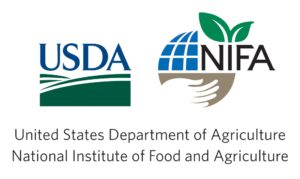NWAL Holds Fifth Annual Tribal Summit
On October 23 & 24, 2019, the Native Waters on Arid Lands (NWAL) project hosted its fifth annual Tribal Summit at the Atlantis Casino Resort in Reno, Nevada. More than 80 people attended this year’s Tribal Summit, traveling from communities and reservations located across Nevada, Arizona, California, New Mexico, Utah, Montana, Oklahoma, Georgia, Hawaii, North Carolina, and Washington D.C.
This year’s event focused on themes of water sustainability and food sovereignty, and included two full days of presentations and interactive discussions between researchers, extension specialists, tribal members, ranchers, agriculturalists, students and others.
Event highlights
Day one: October 23, 2019
The Summit began with a plenary workshop on native climate histories. Participants gathered in groups to discuss questions posed by moderators on the impacts of historic, modern, and predicted future droughts on their lives and practices. Attendees shared experiences and examples of resilience from their families and communities, which are documented here: Native Climate Histories session responses.
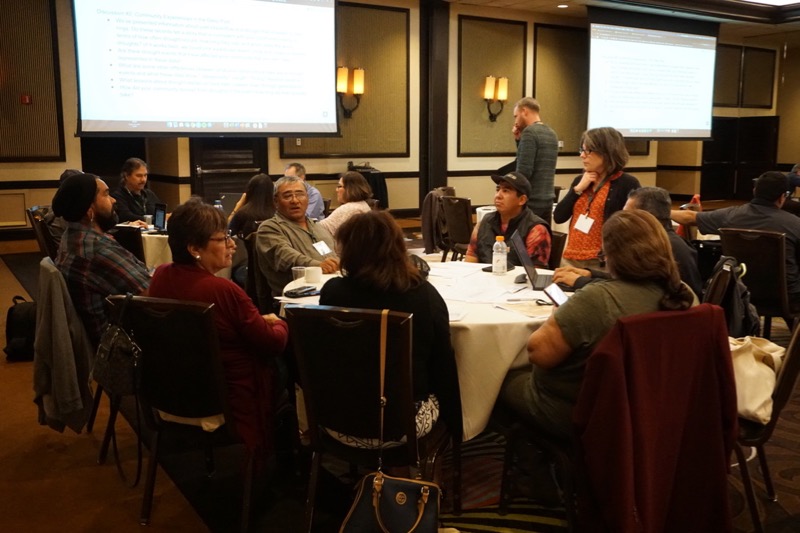
Tribal Summit participants discuss questions posed by moderators during the plenary workshop on Native Climate Histories. Oct 23, 2019.
During a lunchtime keynote presentation, David DeJong of the Gila River Indian Community (Arizona) shared the background and current status of the impressive Pima-Maricopa Irrigation Project. You can view a full recording of his talks on the NWAL YouTube channel: https://youtu.be/b1kF_nt3Bxo
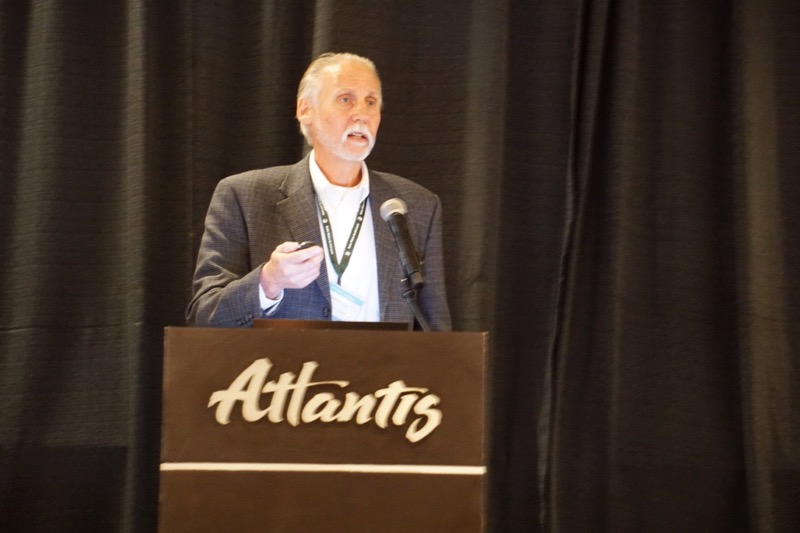
David DeJong from the Gila River Indian Community delivers a lunchtime keynote presentation during the NWAL Tribal Summit. Oct 23, 2019.
In the afternoon, Tribal Summit participants chose between two afternoon breakout sessions. The first session, titled “Weather, Climate and Carbon Data for Tribal Resource Managers and Educators,” included a discussion about tribal data needs to enhance resilience to extreme climate events, a review of the Tribal Lands chapter of the Second State of the Carbon Cycle report, and a review of the outcomes of NWAL’s place-based education and lesson planning workshop that was held in Arizona in September.
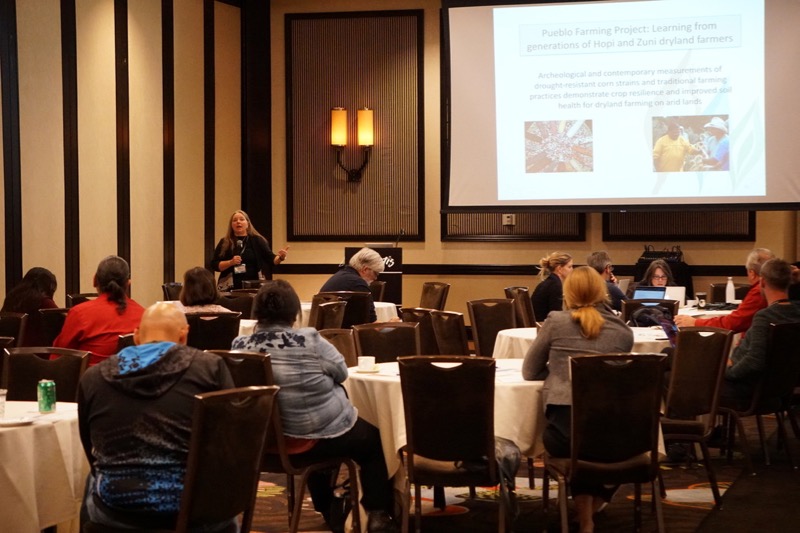
Maureen McCarthy presents during an afternoon breakout session at the 2019 Tribal Summit. October 24, 2019.
The second session, titled “Research results, sharing data, and building capacity,” included a presentation by NWAL team member Kynda Curtis on her research on farmer and rancher response to drought in the west, and a presentation by NWAL team member Helen Fillmore on the results of a needs assessment that she conducted at the 2016 and 2017 Tribal Summits.
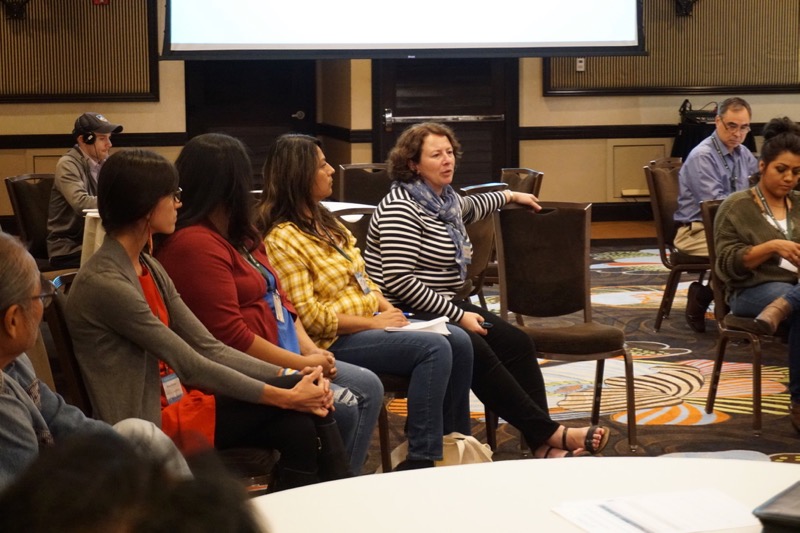
NWAL team member Kynda Curtis leads a discussion on farmer and rancher response to drought in the west during an afternoon breakout session at the 2019 Tribal Summit. Oct 23, 2019.
Day two: October 24, 2019
Morning sessions on the second day of the Tribal Summit focused around the theme of “Celebrating Tribal Food Sovereignty.” First, NWAL team member Bonnie Colby gave an interactive presentation on the key components of reservation and regional economies. Next, a panel of speakers shared successes and challenges from several successful food sovereignty projects in Arizona and Nevada. Finally, NWAL team member Eric Edwards and Leslie Sanchez (Tufts University) led a discussion on tribal water rights adjudication for agricultural use.
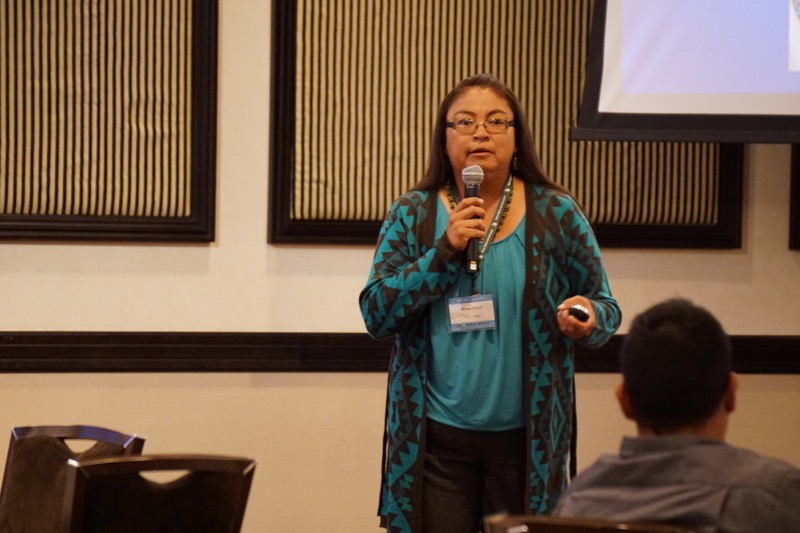
NWAL team member Benita Litson from Dine College discusses Navajo food sovereignty efforts at the NWAL Tribal Summit on Oct 24, 2019.
In a lunchtime keynote presentation, Chris Roper from the Quapaw Tribe of Oklahoma described their impressive array of food sovereignty projects including cattle and bison herds, crop farms, greenhouses, meat processing plant, composting, beehives, brewing company, coffee roasters and more. You can view his presentation on NWAL’s YouTube channel: https://youtu.be/Tfyzj20-NBY
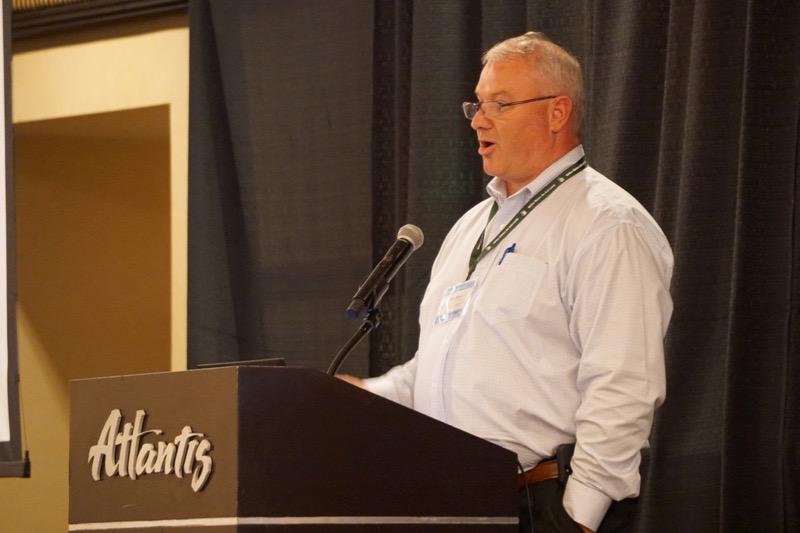
Chris Roper presents food sovereignty success stories from the Quapaw Nation of Oklahoma. Oct 24, 2019.
In the final afternoon of the Tribal Summit, participants chose between two breakout sessions. The first included hands-on demonstrations by Ed Franklin (University of Arizona) on solar energy systems and water quality measurement tools by NWAL team member Alex Lutz (DRI). In the second breakout session, presenters from the University of Nevada, Reno provided an overview of potential for hemp production on reservations.
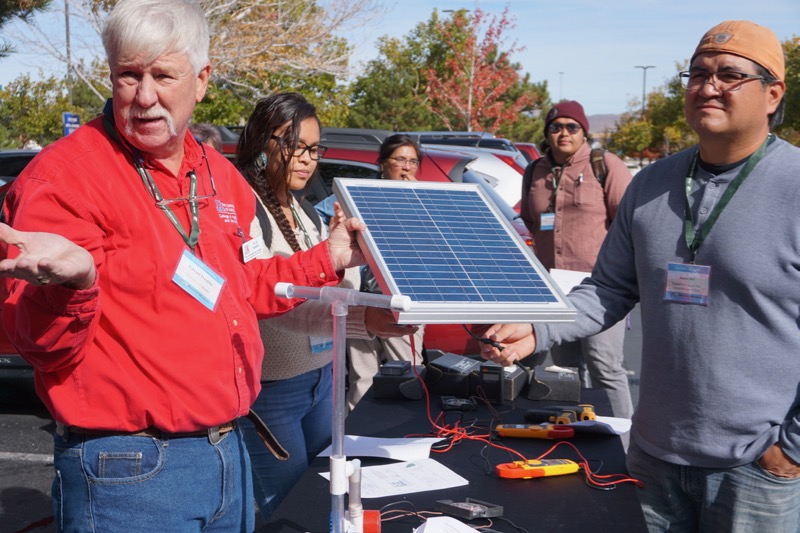
Ed Franklin (left) of University of Arizona demonstrates the use of solar panels and other equipment during a hands-on solar energy systems workshop at the 2019 Tribal Summit. October 24, 2019.
Media coverage
Our 2019 Tribal Summit made the news! Thank you to reporters Noah Glick and Trevor Bexon for taking the time to learn about our work. Their stories are below:
- Merging Western Science With Native Knowledge To Combat Climate Change (KUNR/Mountain West News Bureau)
-
Tribal summit highlights agriculture, food sovereignty (This is Reno).
Thanks!
The NWAL team would like to thank everyone who attended our 2019 Tribal Summit. Please check our website and follow us on social media to hear about future events and next steps for our project!

